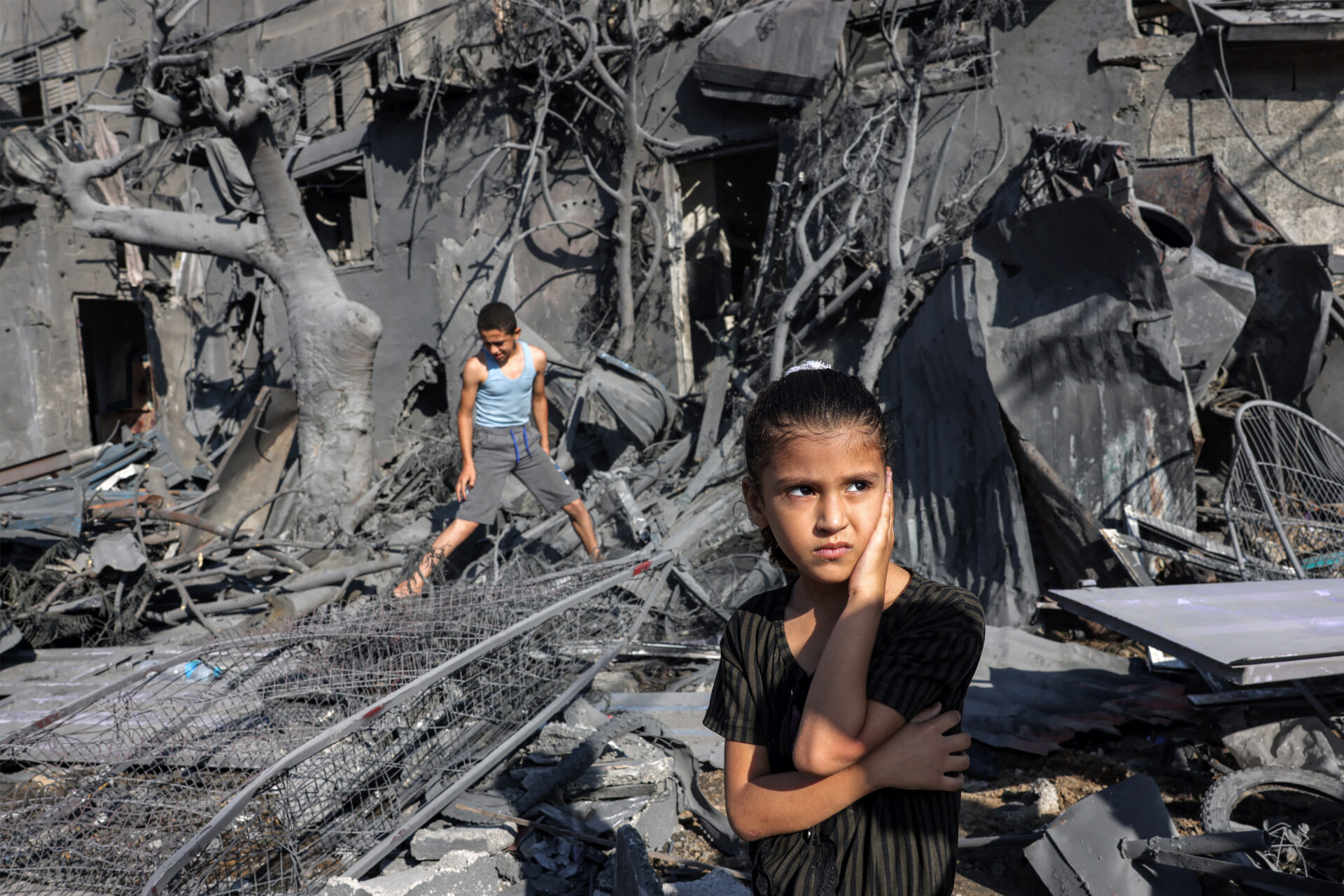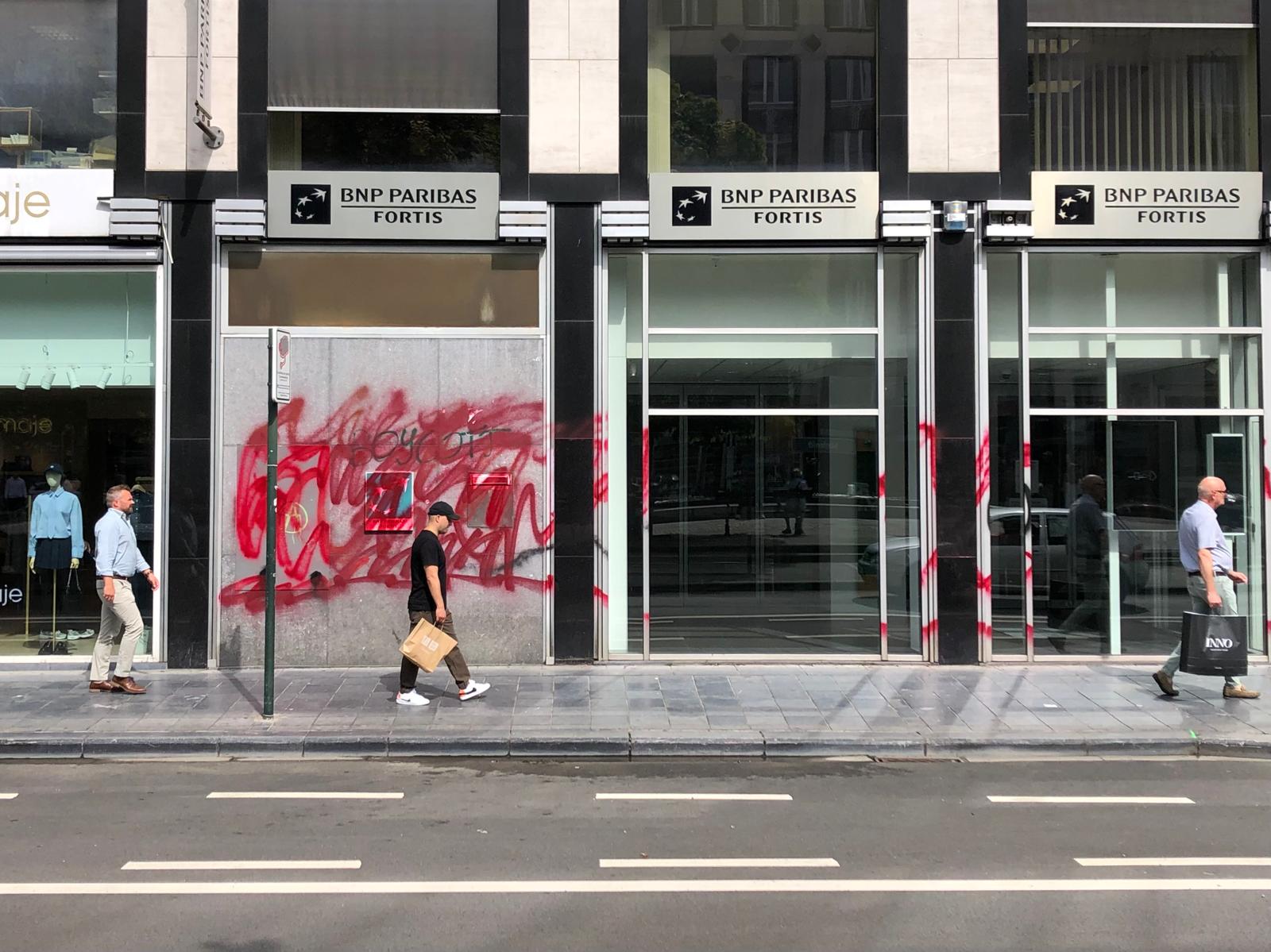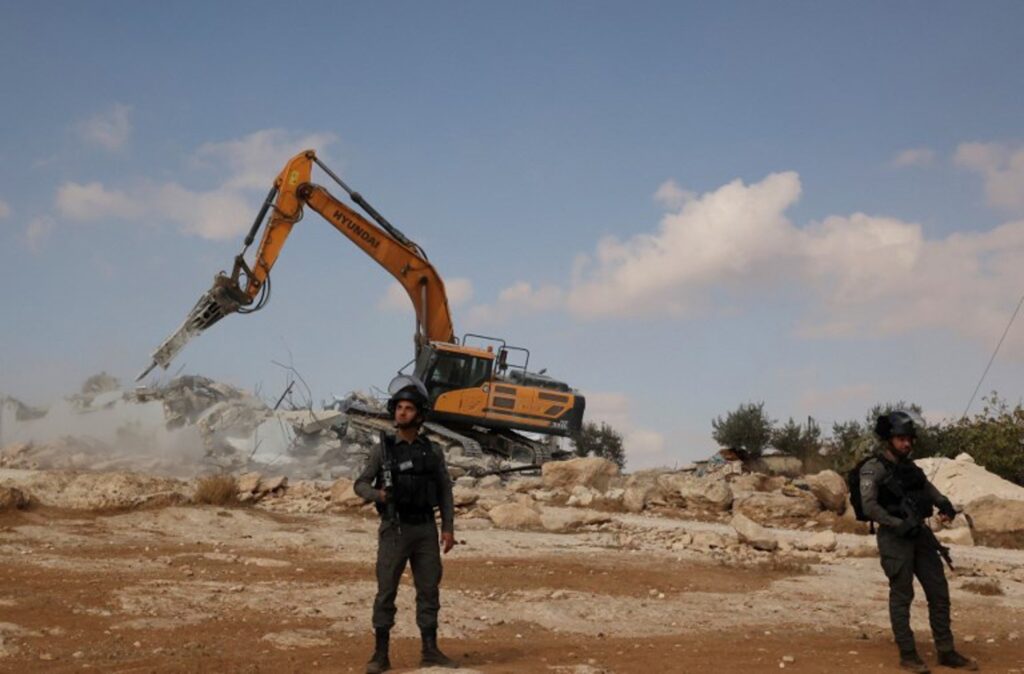KBC, BNP Paribas Fortis and hundreds more European banks are investing in companies which violate international law in Palestine, according to a report.
A total of 882 European financial institutions have injected loans and subscriptions worth $211 billion into companies involved in Israeli settlements. They also hold $182 billion in shares and bonds in these same companies, according to a 'Don't Buy into Occupation' (DBIO) report published on Tuesday.
Among these, KBC and BNP Paribas have invested $772 million in one year (more than double the previous year) into Caterpillar, "a company whose machines contribute to massive violations of international law in Gaza and the West Bank," noted Belgian non-profit CNCD-11.11.11, a member of DBIO.
"For decades, Caterpillar has supplied D9 armoured bulldozers to the Israeli military, used to demolish Palestinian homes and civilian infrastructure in the occupied West Bank and Gaza," the report stated. Since Hamas' terrorist attack on 7 October 2023, Caterpillar bulldozers have played a central role in the ground invasion and what the report calls ethnic cleansing in the Gaza Strip.
In June, United Nations experts called on Caterpillar to stop supplying the Israeli Defence Forces and reminded financial institutions supporting it of their responsibilities.

A child looks on as she stands in the rubble of a building that was hit by Israeli bombardment in Rafah in the southern Gaza Strip. Credit: Belga
'Change is possible'
Belgian banks Delen Private Bank ($43 million), Degroof Petercam ($15 million), and Belfius ($6 million) also finance Caterpillar.
In addition, the National Bank of Belgium (NBB) invested $5 million in TKH Security last year, a Dutch company that supplies cameras to the Israeli police, and $2 million in eDreams ODIGEO, which offers rental accommodations in Israeli settlements.
The report highlights that "change is possible," pointing to French insurance company AXA's decision to withdraw from three Israeli banks that play a key role in financing illegal Israeli settlements.
"Divestments from companies heavily involved in Israeli settlements or in Israeli military operations in Gaza are increasingly common in the financial sector," said Nathalie Janne from CNCD-11.11.11. "This proves that banks are capable of taking responsibility by ensuring that they do not contribute to violations of international law."
BNP denies findings
DBIO also notes that BNP Paribas ranks as the top European creditor of companies "active in Israeli colonisation" for the fourth consecutive time. BNP Paribas denied these accusations on Tuesday.
"The situation in the Middle East is too serious to be weaponised," the bank stated. "We share the intense emotion about the tragic consequences for the civilian population."
"Our ranking is due to our leading position in the eurozone, with operations in over 60 countries. 70% of companies with a turnover of at least €1 billion are our clients," said CEO Michael Anseeuw.

Graffiti on the BNP Paribas building on Avenue Louise in Brussels. Credit: The Brussels Times
BNP Paribas declined to comment on specific cases relating to the arms industry but said its activities are "highly regulated".
"BNP Paribas does not operate in the occupied territories, it does not own subsidiaries in Israel or Palestine and plays no role in financing the occupied territories. We are horrified by what is happening there," said Anseeuw. The bank also condemned acts of vandalism at its branches committed by pro-Palestine activists, stating that "the safety of our staff and clients is an absolute priority."
Belgian bank KBC has also denied involvement in the Israeli occupation, arguing that ‘the report uses incorrect figures and inaccurate data, leading to erroneous and biased conclusions’.
"All of KBC's business activities are subject to strict sustainability rules on human rights, the environment and ethical business practices," the bank said. "KBC complies with national and local regulations in every country where the KBC group operates, as well as with international law. All this is supported by KBC's sustainability governance and related internal controls."

